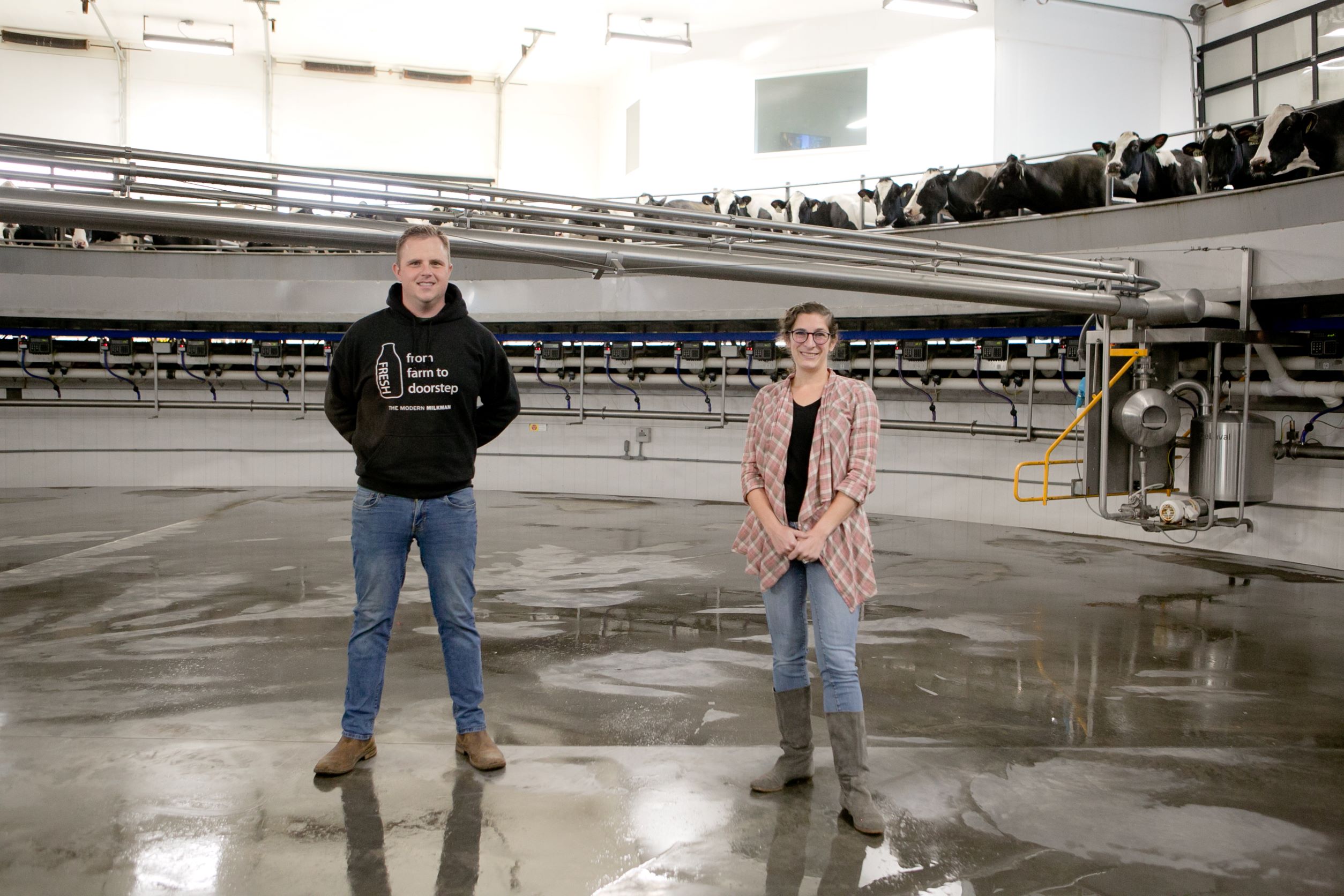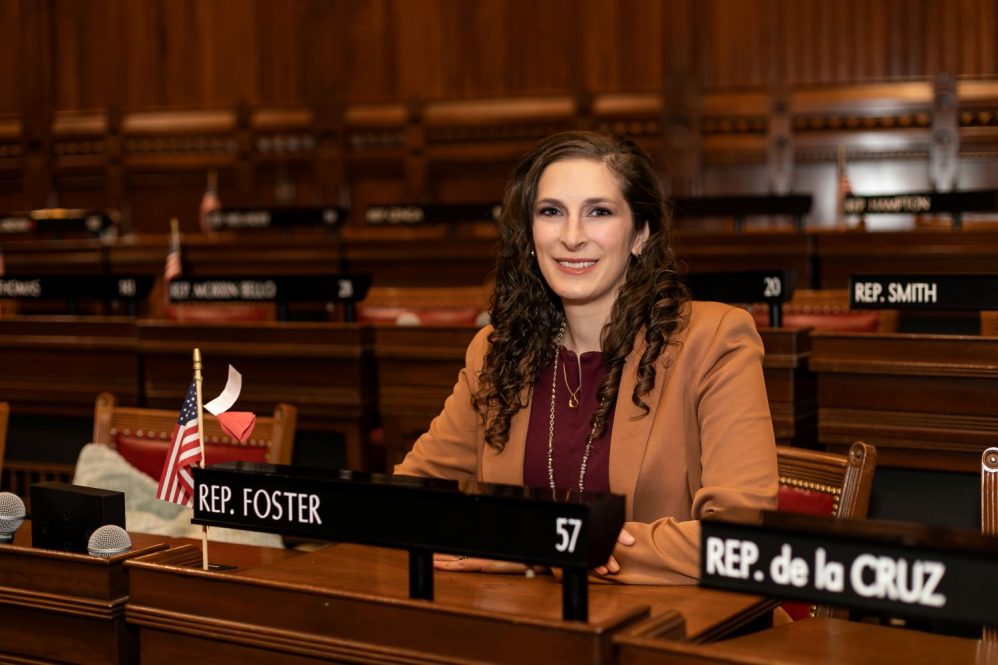State representative Jaime Foster has forged a career that uses her research experience in health sciences and nutrition to support policy change.
Foster will share her thoughts on the overlap between these seemingly distinct topics at the 2022 commencement ceremony for the College of Agriculture, Health and Natural Resources.
Foster (‘12, ‘14, ‘17) earned her bachelor’s degree in the Coordinated Program in Dietetics in the Department of Allied Health Sciences, and she is a registered dietician.
During her time as an undergraduate student, Foster worked closely with faculty including Director of the Dietetics Program Ellen Shanley, Professor Val Duffy, Associate Professor Jane Kerstetter, and Extension Instructor Tina Dugdale.
The program involves students completing hands-on clinical work the community while taking classes.
“I think it set me up to pull double duty, which is something I’ve continued to do for the rest of my life,” Foster says. “It was a small group that really cared about us.”
While Foster initially intended to open a small business to help people with weight loss, an experience during clinical work changed her path forever.
While presenting a nutrition lesson in a middle school, Foster noticed one student was distracted and disengaged. The teacher asked if the student had eaten breakfast that morning or dinner last night – he replied “no” to both questions.

State representative and CAHNR alum, Jaime Foster, meets with local school children. (Contributed photo)

Foster is working on a bill focused on the emergency food system and how it can support local farmers. (Contributed photo)
This made Foster realize there were children in her community seriously struggling with food insecurity and many schools lacked the support to address this problem.
As a master’s and then doctoral student in the Department of Nutritional Sciences, Foster shifted her focus to food insecurity and hunger research. Foster worked with Associate Professor Amy Mobley (who now teaches at the University of Florida) and Professor Emeritus Hedley Freake. She completed postdoctoral training with Marlene Schwartz, director of UConn’s Rudd Center for Food Policy and Obesity.
“I always felt like working one on one with a person would never feel like it did enough because I wanted to fix everything,” Foster says. “I wanted to fix the system and I saw research as a really good way to do that.”
As a graduate student, Foster investigated the USDA food security measure by gender. She found that if you ask a woman in the household, she is more likely to provide a worse picture of their food insecurity situation than a man in the household.
In 2016, while completing her doctorate, Foster ran for a seat on the Ellington Board of Education. Her winning platform focused on fixing the fact that every school did not offer free breakfast for students.
In 2020, when the incumbent for the 57th District, which represents East Windsor and Ellington, dropped out of the race, the state Democratic Party chose Foster to run. She is now serving in the state legislature on the Committee on Children, Energy and Technology Committee, and Public Health Committee.
“People were, at the time, really excited about a scientist with health experience in the time of Covid,” Foster says.
As a legislator, Foster has been working on initiatives such as an anti-lunch shaming bill and a bill prohibiting schools from taking away recess. Foster says programs that focus on ensuring children have access to the food and physical activity they need to be healthy can help prevent serious health conditions from developing later.
She is also working on a bill focused on the emergency food system and how it can support local farmers.
“When we support the emergency food system through local agriculture, we boost the local economy and that sector is so important,” Foster says.
Foster’s scientific efforts continue in concert with her public service work. She is also a research scientist at the Yale-Griffith Prevention Research Center where she works as a qualitative methodologist on studies supporting non-profit organizations implementing programs to help control and prevent chronic disease.
Foster says her experience as a researcher not only allows her to have a firm grasp on local and federal food programs, but to understand how scientific consensus can change as scientists conduct more studies and learn new information.
“In general, I think scientists should be in politics,” Foster says. “We understand how a body of evidence shifts over time.”
Foster’s connection to her alma mater hasn’t shifted over time – it remains strong across several departments. Foster has maintained relationships with many of her UConn professors and some have even worked with Foster to testify in Congress about the science behind nutritional initiatives.
“They have experience that helps them help you,” Foster says. “You forge relationships, and you have to maintain them and it’s up to you as a student to keep them strong.”
Foster says her experience at UConn prepared her to constantly work toward something, even though her path has had a few turns in it.
“What we have is the ability to critically dissect news and science and media and we can be responsive to change in our own lives and community,” Foster says.
Foster’s time at UConn provided her with the skills she needed to think critically about problems and determine how to address them with both research and policy, something she encourages new graduates to consider.
“You graduate college as an expert in something,” Foster says. “You should use that for something. What we do should matter.”
Follow UConn CAHNR on social media



